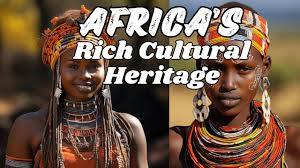The Role of Chieftaincy in Ghana's Local Governance
Chieftaincy in Ghana holds a significant place in the cultural and political landscape, influencing local governance and community development. Chiefs serve as traditional leaders, embodying the history, customs, and values of their communities. Their roles extend beyond mere ceremonial functions; they are pivotal in shaping local governance and fostering community initiatives.
In Ghana, local governance is structured through a decentralized system, with chiefs acting as critical intermediaries between the government and the people. They play an essential role in the governance framework, facilitating communication and ensuring that community concerns are addressed in local decision-making processes. By collaborating with district assemblies, chiefs contribute to the formulation and implementation of policies that resonate with the needs of their communities.
One of the primary ways chiefs impact local governance is through their involvement in conflict resolution and peacebuilding. In many Ghanaian communities, chiefs are seen as custodians of tradition and arbiters of justice. Their authority and influence enable them to mediate disputes, fostering social cohesion and stability. This peaceful environment is vital for community development, as it encourages investment, promotes economic activities, and enhances the overall quality of life.
Furthermore, chiefs are instrumental in mobilizing resources for community development initiatives. They often lead efforts to improve local infrastructure, such as schools, roads, and healthcare facilities. By leveraging their networks and influence, chiefs can attract funding and support from governmental and non-governmental organizations. Their active participation in these projects not only addresses immediate community needs but also instills a sense of ownership among residents, enhancing civic engagement.
Additionally, chiefs play a critical role in promoting cultural heritage and social values. They are custodians of local traditions and customs, which fosters a sense of identity and belonging within the community. This cultural leadership is essential in promoting social cohesion and encouraging collective action towards community development goals.
In conclusion, the chieftaincy institution significantly impacts local governance and community development in Ghana. Through their roles in conflict resolution, resource mobilization, and cultural preservation, chiefs contribute to creating stable, vibrant communities. As Ghana continues to navigate the complexities of modern governance, the integration of traditional leadership into local governance structures will be crucial for sustainable development and social harmony.



No comments yet
Be the first to share your thoughts!